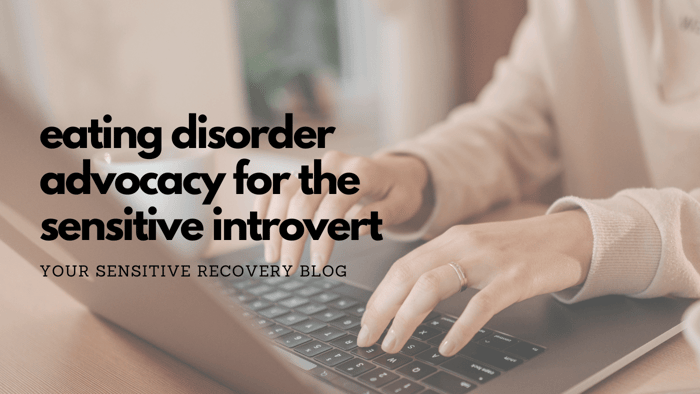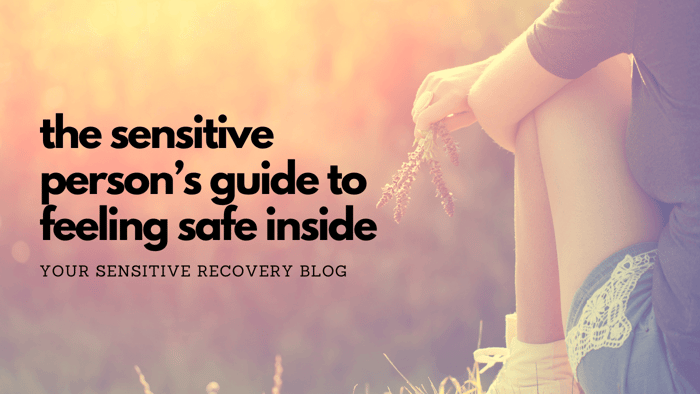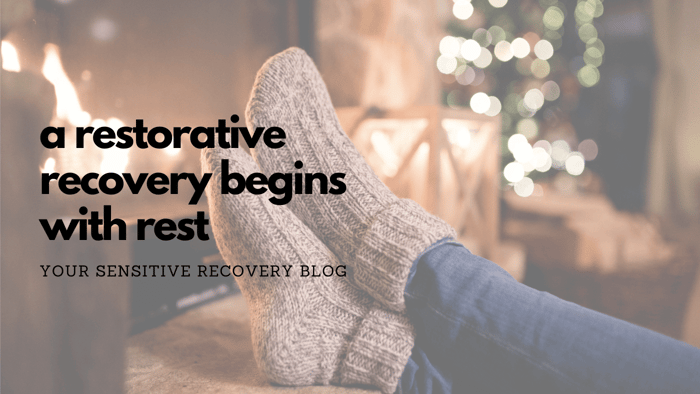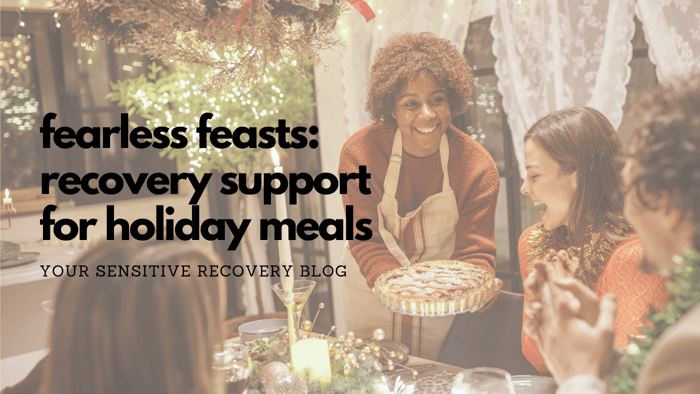Healing from an eating disorder is an incredible milestone, yet it often leaves a sort of void where the struggle once lived. Many people in recovery yearn to turn their difficult experiences into something meaningful. Could eating disorder advocacy fill that void?
I remember my own "void experience" quite clearly. The challenge of my eating disorder recovery was mostly behind me and I was feeling rather directionless. A part of me wished that I had another "mountain" to climb. Highly Sensitive People (HSPs) often crave structure, routine, and clearly defined goals. An eating disorder might meet those needs at first. Eventually, the journey of recovery meets them instead. But once recovery is solid, and no longer so much of a mental and emotional challenge, what's next?
Sensitive, introverted folks can feel hesitant and daunted by the thought of advocacy. We're used to seeing stories of advocacy that resonate as monumental, loud, and life-changing.Being prone to comparison, HSPs can easily turn away from opportunities thinking they aren't a fit. If you’re not drawn to public marches or large financial donations, you might wonder if there’s truly a place for you in anti-diet, body liberation, or eating disorder prevention advocacy work. THERE IS. Advocacy comes in many forms, and sensitive introverts have unique gifts to offer.
In this post, I’ll share different ways that you can make an impact while protecting your energy and honoring your natural strengths.
Redefining Advocacy: The Many Roles in Change
In order to thrive, every movement relies on dedicated humans filling a variety of different roles; many of which sensitive introverts are uniquely suited. Deepa Iyer (@deepaviyer), an activist and social change strategist, created the Social Change Map to identify and highlight these different roles. They are:
- Weavers, who connect people and ideas.
- Experimenters, who innovate and take creative risks.
- Frontline Responders, who act during crises.
- Visionaries, who articulate bold futures.
- Builders, who create sustainable systems.
- Caregivers, who nurture relationships.
- Disruptors, who challenge oppressive systems.
- Healers, who address trauma.
- Storytellers, who craft inspiring narratives.
- Guides, who mentor others and share their wisdom.
As a sensitive introvert, you may only feel drawn to a few roles that align with your authentic gifts and tendencies. Perhaps you like the idea of Guides, Caregivers, or Storytellers. Each role is equally important and nobody needs to attempt to fill all the roles, especially the ones that don't match your nature.
Many introverts thrive in solo work environments, but advocacy is really a team effort. Consider the wisdom shared in The Gap and The Gain by Dan Sullivan and Dr. Benjamin Hardy. They emphasize the idea of focusing on "who, not how." Instead of burning out trying to figure out how to master a task you aren't suited for, you instead focus on finding people who can complement your strengths and support your efforts. For example, you could partner with a Visionary to help articulate the bigger picture of a project or a Builder to create a structure for your advocacy work. Collaborating with others who are aligned with your values can amplify your impact while protecting your energy.
Putting Your Sensitive Gifts Into Action
From writing an informative blog post (Hi! 👋), mentoring someone in early eating disorder recovery, or calling out and boycotting harmful diet culture trends, you can make a valuable impact, just as you are. Here are some more ways you might get started:
- Share your recovery journey in safe spaces, online or offline, to help end the stigma. This can happen not just through words but through visual and performing arts as well.
- Create or share educational content, such as infographics to spread awareness of the causes you want to support.
- Have meaningful conversations with family and friends about diet culture and body image.
- Refuse to participate in negative body talk toward yourself and others, as this perpetuates the oppressive belief that certain bodies are more valuable than others.
- Facilitate or participate in peer support groups for eating disorders recovery.
- Support organizations by helping with administrative tasks, event planning, or outreach efforts.
- Contact policymakers or companies to advocate for changes such as ending harmful advertising practices.
- Offer your professional skills, whether writing, graphic design, data analysis, or financial know-how, to existing advocacy organizations.
Start Where You Are
Eating disorder advocacy is just one of many ways you might utilize what you've gained throughout your recovery journey and "pay it forward" if you so wish. For me, I became an eating disorder therapist, and it was one of the best decisions of my life. It allowed me to have true gratitude for the dark years I spent lost in my illness.
But this full-circle experience can occur in so many different ways. As a sensitive introvert, you don’t need to go back to school for psychology, march in the streets, megaphone in hand, or empty your bank account to make a meaningful impact.
Your unique strengths are invaluable to movements like eating disorder awareness and prevention, body liberation, and anti-diet culture.Remember, advocacy isn’t about how much you do or how visible you are; it’s about contributing in ways that are aligned with and support your authentic values. Start small and lean into your strengths. Explore the roles that align with YOU and embrace the "who not how" mindset to make ripples of transformation that are both fulfilling and sustainable.
Are you ready to take your first step? Pick any idea that resonates with you from this post and give it a try! You might be surprised at the difference you can make. Your voice and actions matter, my sensitive, introverted friend.
And this world needs you. 💪
✨ Josie Munroe, LMFT is a licensed therapist and owner of JosieMunroe.com and Your Sensitive Recovery. As a recovered clinician and Highly Sensitive Person, she loves supporting others on their journeys to form new, empowered relationships with food, their bodies, and their sensitivity. Join the newsletter for a weekly boost of hope and inspiration. You deserve a recovery that works for you! ✨





